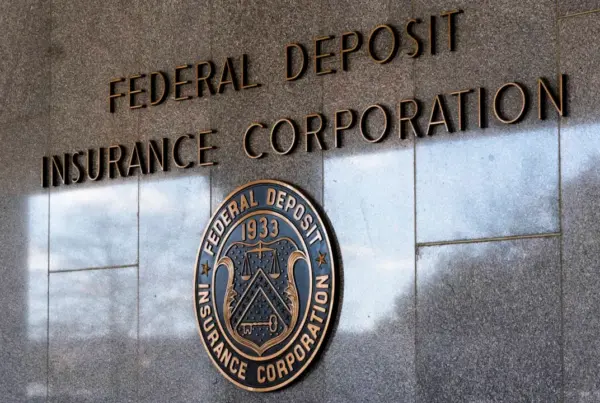“`html
FDIC’s Proposed Brokered Deposits Rule: Key Insights for Financial Institutions
Introduction
On July 30, 2024, the Federal Deposit Insurance Corporation (FDIC) announced a proposed rule aimed at revising regulations concerning brokered deposits. This initiative is significant as it reflects the FDIC’s commitment to enhancing the safety and soundness of the banking system amid evolving financial landscapes. Historically, the FDIC has regulated brokered deposits to mitigate risks associated with liquidity and deposit insurance. The proposed changes build upon prior regulations and enforcement actions, addressing concerns about the increasing complexity of deposit placement strategies employed by various financial entities. The primary issue at hand is the need for clearer definitions and stricter oversight to safeguard the integrity of the banking system.
Key Regulatory Changes & Analysis
1. Expansion of the Definition of Deposit Broker
The proposed rule expands the definition of “deposit broker” to encompass a broader range of entities involved in deposit placement.
- Previous Definition: Previously, a deposit broker was primarily defined as an entity that received a fee for placing deposits with banks.
- New Definition: The new definition includes any entity that facilitates the placement of deposits, regardless of compensation.
This expansion aims to capture a wider array of market participants, including fintech companies and other non-traditional financial institutions.
2. Enhanced Reporting Requirements
The FDIC proposes new reporting obligations for banks that utilize deposit brokers.
- New Reporting Obligations: Banks will be required to disclose detailed information regarding their relationships with deposit brokers, including the volume of deposits placed and the associated fees.
- Compliance Implications: This increased transparency is intended to enhance the FDIC’s ability to monitor brokered deposits and manage associated risks.
3. Restrictions on Brokered Deposits for Undercapitalized Institutions
The proposed rule introduces stricter limitations on the acceptance of brokered deposits by institutions that are not well capitalized.
- Capital Requirements: Under Section 29 of the Federal Deposit Insurance Act, banks that do not meet specific capital thresholds will face restrictions on their acceptance of brokered deposits.
- Risk Management: This measure aims to protect the financial stability of vulnerable institutions, thereby reducing systemic risk.
Legal and Industry Implications
The proposed regulatory changes will impose new compliance burdens on affected financial institutions, necessitating adjustments to operational practices and reporting systems. Key implications include:
- Compliance Costs: Institutions may incur significant costs related to updating compliance frameworks and systems to align with the new reporting requirements.
- Legal Risks: The broadened definition of deposit brokers may expose institutions to heightened scrutiny and potential enforcement actions for non-compliance.
- Litigation Considerations: Financial institutions should be aware of potential legal challenges arising from the implementation of these rules, which may lead to administrative disputes or litigation.
To mitigate risks, affected parties should consider consulting legal experts to navigate compliance strategies effectively.
Recommended Actions & Compliance Strategies
Affected financial institutions should undertake the following actions to ensure compliance with the proposed rule:
- Review Existing Practices: Conduct a thorough review of current relationships with deposit brokers to identify necessary adjustments.
- Update Compliance Programs: Revise compliance programs to incorporate new definitions and reporting obligations.
- Staff Training: Implement training initiatives for relevant personnel to ensure awareness of the new regulations and their implications.
- Monitor Key Deadlines: Stay informed of critical deadlines for compliance and regulatory filings.
- Engage in Public Comment: Participate in the public comment process to express concerns or support for the proposed rule, as stakeholder feedback may influence final regulatory decisions.
Conclusion & Next Steps
The FDIC’s proposed changes to brokered deposit regulations represent a significant shift in the regulatory landscape for financial institutions. Key takeaways include the expanded definition of deposit brokers, enhanced reporting requirements, and new restrictions for undercapitalized banks. The timeline for implementation remains uncertain, pending the conclusion of the public comment period and any subsequent adjustments to the proposal. Stakeholders should remain vigilant regarding potential legal or legislative actions that could impact the enforcement of these rules. As the regulatory environment continues to evolve, ongoing vigilance and proactive compliance measures will be essential for affected parties. Financial institutions are encouraged to monitor developments from the FDIC and consult with legal experts to navigate the complexities of compliance effectively.
“`


